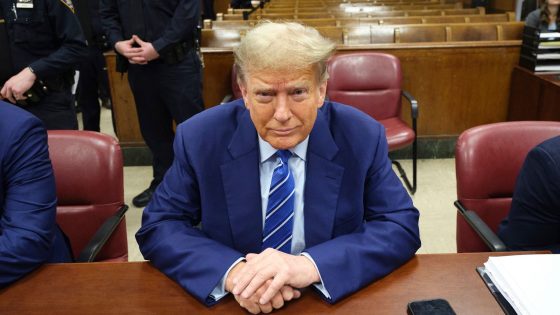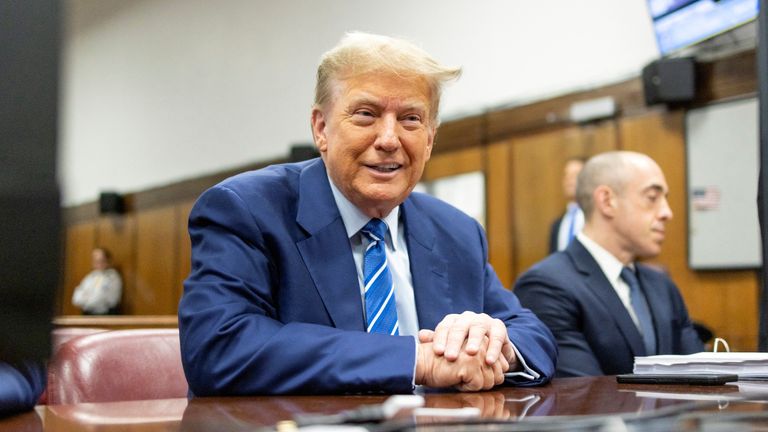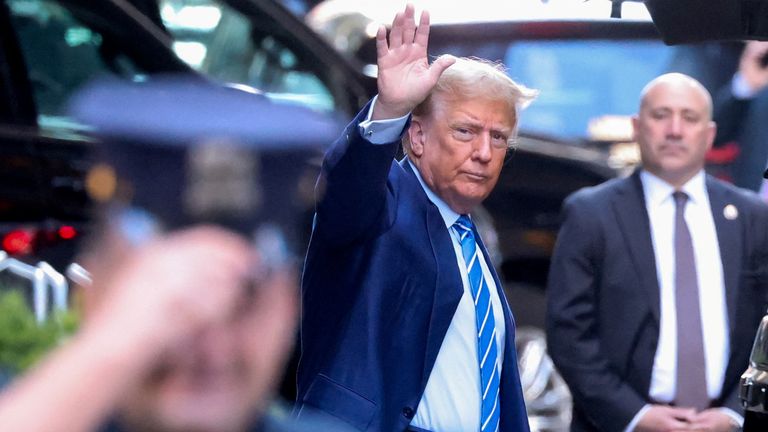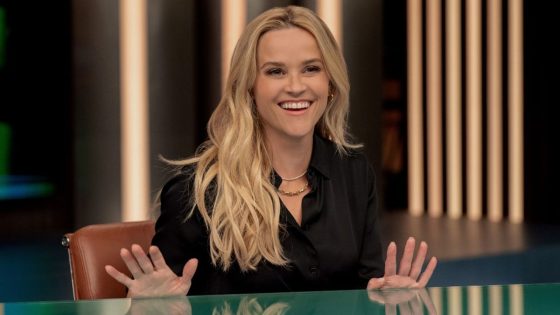A judge in Donald Trump’s hush money trial has warned the former president about “intimidating” potential jurors in the case.
Justice Juan Merchan warned he would not tolerate Trump speaking while potential jurors were questioned in court on Tuesday.
He said the former president was audibly uttering something while his lawyers were questioning prospective jury members, and warned: “I will not have any jurors intimidated in the courtroom.”
The first six jurors were selected to serve on Tuesday afternoon on the panel of 12 jurors and six alternates in the historic trial.
They include a waiter, an oncology nurse, an attorney, an IT consultant, a teacher and a software engineer.
Several others had been excused on Tuesday morning after saying they could not be impartial or because they had other commitments.
Dozens of potential jurors have yet to be questioned.
It is the first of Trump‘s four criminal cases to go to trial and may be the only one that could reach a verdict before the presidential vote in November.
If convicted, Trump – the presumptive Republican presidential nominee – would become the first former US president convicted of a crime.
He has pleaded not guilty to 34 felony counts of falsifying business records as part of an alleged effort to keep salacious and, he says, bogus stories about his sex life from emerging during his 2016 campaign.
Trump has claimed the trial is the result of a politically motivated justice system working to deprive him of another term as president.
Before entering the courtroom this morning, he stopped briefly to address a TV camera in the hallway, repeating his claim that the judge is biased against him.
“This is a trial that should have never been brought,” Trump said.
Among the potential jurors dismissed on Tuesday was a woman who had previously notified the judge she had a trip planned around Memorial Day.
A man was excused after saying he could not be impartial.
Read more:
All the terms you might hear in Trump’s court cases
The key figures in the hush money case
Another man, who works at an accounting firm, was dismissed after saying he feared his ability to be impartial could be compromised by “unconscious bias” from growing up in Texas and working in finance with people who “intellectually tend to slant Republican”.
Jury selection could take several more days – or even weeks – in New York, which is a heavily Democratic city.
Around a third of the 96 people in the first panel of potential jurors in court on Monday remained after the judge excused some members.
More than half were excused after saying they could not be fair and impartial, and several others were dismissed for other reasons that were not disclosed.
The trial centres on $130,000 (£104,400) in payments that Trump’s company made to his then-lawyer, Michael Cohen.
He paid that sum on Trump’s behalf to keep porn actress Stormy Daniels from going public with her claims of a sexual encounter with Trump a decade earlier.
The former president has denied the sexual encounter ever happened.
Read more: Who is Stormy Daniels?
Prosecutors say the payments – which they claim were falsely logged as legal fees – were part of a scheme to bury damaging stories Trump feared could help his opponent in the 2016 race, particularly as his reputation was suffering at the time from comments he had made about women.
Trump said the payments, which he acknowledged reimbursing Mr Cohen for, were designed to stop Ms Daniels from going public about the alleged encounter.
The former president previously said it had nothing to do with the 2016 campaign.
If convicted of falsifying business records, Trump faces up to four years in prison, though there is no guarantee he will get time behind bars.
His three other legal cases, involving allegations of election interference and hoarding classified documents, could lead to lengthy prison sentences.
But those cases are tied up with appeals or other issues that make it increasingly unlikely they will be decided before the election.
If Trump wins in November, he could order a new attorney general to dismiss his federal cases.
Source Agencies





